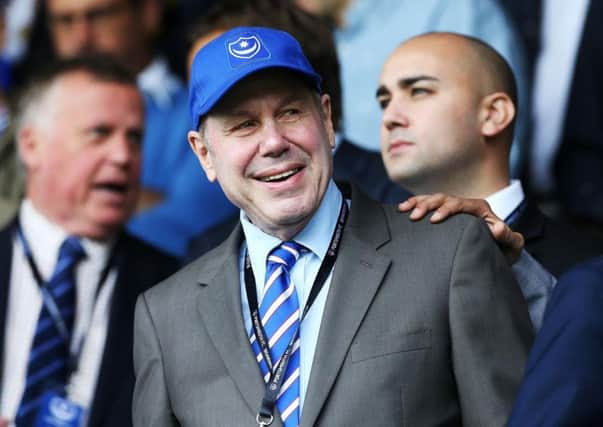The cost of Pompey joining the Championship race


And Pompey have marginally sprung a surprise to be among the leaders in the field at this stage.
But when the chequered flag is waved are Kenny Jackett’s men going to be on the podium celebrating?
Advertisement
Hide AdAdvertisement
Hide AdMore to the point, do the powers that be at Fratton Park want to be cracking open the bubbly?
Now, the notion promotion this term wouldn’t necessarily be welcomed in the corridors of power at PO4 or, indeed California, could be perceived as odd or even bizarre.
After all, isn’t it all about striving for victory? The game’s about glory, and all that.
Well, yes, but when you do make it there you don’t want to come crashing back out in a plume of flames. That, especially given Pompey’s past, is a scene everyone’s desperate to avoid.
Advertisement
Hide AdAdvertisement
Hide AdIt’s that sentiment which made Michael Eisner’s rhetoric of organic rather than nitro-fuelled growth palatable for supporters and 81.4 per cent of shareholders, during his summer sales pitch for the club.
Make no bones about it, if Pompey were to make the Championship next term they’d be entering a financial environment on another galaxy to the one they currently inhabit.
The Blues, as has been documented, started the season with a playing budget of £3m which placed them in the middle reaches of the League One financial pecking order.
That figure crept a little further north through a busy August window and the green light has been given for further strengthening to a injury-hit squad through the January transfer pit stop.
Advertisement
Hide AdAdvertisement
Hide AdIn terms of the muscle generally needed to compete in the second tier, though, that figure is a drop in the ocean.
Tornante’s promise of injecting £10m in equity to the club has seen early focus on getting Fratton Park in operational condition, while developing an all-encompassing strategy for the way forward.
So no criticism has been levelled for Pompey’s moderate spending power at this level but the purse strings would need to be majorly loosened to be competitive in the higher division.
A look at the figures underlines just how vast the gulf has become between third and second tiers.
Advertisement
Hide AdAdvertisement
Hide AdWhen Pompey reached the Premier League in 2002-03, they did so on the back off a ‘moneybags’ tag. Top-flight football was delivered on a wage-bill rising from £7m to £10m, as Harry Redknapp got the city celebrating.
The most-recently available financial figures for Championship clubs – from the 2015-16 season – shows 12 sides with staff costs topping £25m.
Seven of those topped £30m, with QPR’s north of £40m. Of those sides, Fulham (£36.1m) finished 20th, Nottingham Forest (£30.6m) 16th and Blackburn (£25.3m) 15th. Bolton finished bottom with staff costs of £26.5m.
Then there are those clubs coming down from the Premier League, who are in receipt of parachute payments, to consider. Sides are now receiving more than £90m – sides Pompey would have to compete with.
Advertisement
Hide AdAdvertisement
Hide AdSo it’s clear, when it comes to finances, the Championship has most definitely become Premier League II.
The good news is there are clubs who offer hope a prudent approach can reap dividends.
Burton Albion survived last season by a single point with a wage bill of £7.8m, while Huddersfield are many club’s model to make it to the promised land on a sustainable basis.
Their wage bill was believed to around the 19th highest in the division (£13m) as they reached the Premier League last term.
Advertisement
Hide AdAdvertisement
Hide AdSo, yes, a promotion, however unlikely, would of course be welcomed as heartily in the boardroom as in Fratton Park’s stands.
But, no matter Pompey’s standing in the game, they’d be returning to a very different race to the one they last stormed to victory in.